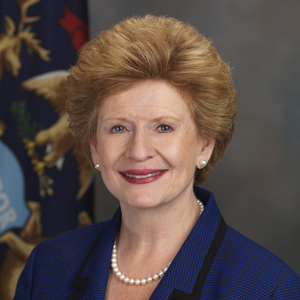Bill will help farmers, foresters participate in carbon markets

April 22, 2021
BY Erin Krueger
Sens. Mike Braun, R-Ind.; Debbie Stabenow, D-Mich.; Lindsey Graham, R-S.C.; and Sheldon Whitehouse, D-R.I., on April 20 re-introduced the Growing Climate Solutions Act, which will break down barriers for farmers and foresters interested in participating in carbon markets so they can be rewarded for climate-smart practices. The bill passed out of the Senate Committee on Agriculture, Nutrition and Forestry on April 22. The legislation was previously introduced in June 2020 and addressed during a senate hearing later that month.
The bill would create a certification program at USDA to help solve technical entry barriers that prevent farmer and forest landowner participation in carbon credit markets. According to the senators, these issues—including access to reliable information about markets and access to qualified technical assistance providers and credit protocol verifiers—have limited both landowner participation and the adoption of practices that help reduce the cost of developing carbon credits.
To address this, bill establishes a Greenhouse Gas Technical Assistance Provider and Third-Party Verifier Certification Program through which USDA will be able to provide transparency, legitimacy, and informal endorsement of third-party verifiers and technical service providers that help private landowners generate carbon credits through a variety of agriculture and forestry related practices. The USDA certification program will ensure that these assistance providers have agriculture and forestry expertise, which is lacking in the current marketplace. As part of the program, USDA will administer a new website, which will serve as a “one stop shop” of information and resources for producers and foresters who are interested in participating in carbon markets.
Advertisement
Advertisement
Through the program, USDA will help connect landowners to private sector actors who can assist the landowners in implementing the protocols and monetizing the climate value of their sustainable practices. Third party entities, certified under the program, will be able to claim the status of a “USDA Certified” technical assistance provider or verifier. The USDA certification lowers barriers to entry in the credit markets by reducing confusion and improving information for farmers looking to implement practices that capture carbon, reduce emissions, improve soil health, and make operations more sustainable.
The bill would also create an advisory council composed of agricultural exports, scientists, producers and others that advise the secretary of agriculture and ensure that the certification program remains relevant, credible, and responsive the needs of farmers, forest landowners, and carbon market participants. Finally, the bill would also instruct the USDA to produce a report to Congress to advise about further development of this policy area, including barriers to market entry, challenges raised by farmers and forest landowners, market performance, and suggestions on where the agency can make a positive contribution to the further adoption of voluntary carbon sequestration practices in agriculture and forestry.
Advertisement
Advertisement
Supporters of the Growing Climate Solutions Act include American Farm Bureau Federation, American Soybean Association, Archer Daniels Midland Co., Biotechnology Innovation Organization; Corn Refiners Association, Green Plains, National Alliance of Forest Owners, National Woodland Owners Association, National Corn Growers Association, National Farmers Union, Novozymes, Syngenta, Growth Energy, and National Biodiesel Board.
Growth Energy has spoken out in support of the bill. “Today, on Earth Day, we applaud Senators Stabenow, Braun, Graham, and Whitehouse and the broad and bipartisan list of co-sponsors for their leadership on the Growing Climate Solutions Act,” said Emily Skor, CEO of Growth Energy. “Our ag communities are already eager to play a large role in reducing emissions nationwide and soil carbon sequestration expands this participation in our nation’s climate change strategy. The Growing Climate Solutions Act rightly rewards farmers for climate-smart practices and provides important guidelines for success.”
Additional information is available on the Senate Committee on Agriculture, Nutrition and Forestry website.
Related Stories
The USDA has announced it will delay opening the first quarterly grant application window for FY 2026 REAP funding. The agency cited both an application backlog and the need to disincentivize solar projects as reasons for the delay.
Neste and DHL Express have strengthened their collaboration with the supply of 7,400 tons (9.5 million liters) of neat, i.e. unblended, Neste MY Sustainable Aviation Fuel to DHL Express at Singapore Changi Airport starting July 2025.
CoBank’s latest quarterly research report, released July 10, highlights current uncertainty around the implementation of three biofuel policies, RFS RVOs, small refinery exemptions (SREs) and the 45Z clean fuels production tax credit.
The USDA significantly increased its estimate for 2025-’26 soybean oil use in biofuel production in its latest World Agricultural Supply and Demand Estimates report, released July 11. The outlook for soybean production was revised down.
The U.S. Energy Information Administration maintained its forecast for 2025 and 2026 biodiesel, renewable diesel and sustainable aviation fuel (SAF) production in its latest Short-Term Energy Outlook, released July 8.
Upcoming Events










